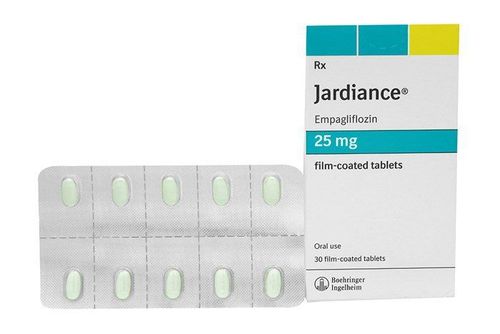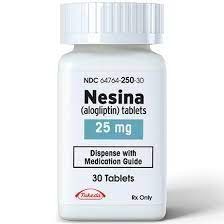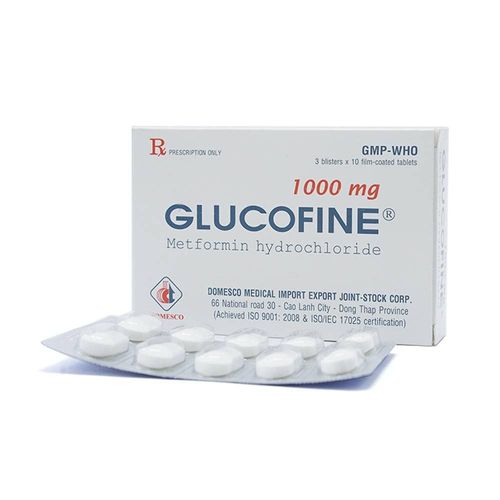This is an automatically translated article.
Diabetes is a very common chronic disease today. Accordingly, antidiabetic drugs are also very rich and diverse. Besides oral drugs, injection drugs can bring faster and more pronounced effects, including Bydureon drug.
1. What is Bydureon?
Bydureon drug has the active ingredient Exenatide as the main active ingredient. What does Bydureon do? Bydureon is an extended-release injectable diabetes medication that helps control blood sugar. Bydureon helps the patient's pancreas to produce insulin more efficiently.
Bydureon is used with diet and exercise to improve blood sugar control in patients with type 2 diabetes. Bydureon is intended for use by adults and children who are at least 10 years old. Bydureon is not for the treatment of type 1 diabetes.
2. Be careful when using Bydureon
Patients should not use Bydureon if there is a personal or family history of thyroid cancer, if the patient has multiple endocrine neoplasia type 2 (a type of cancer that can affect the thyroid, parathyroid glands) and adrenal glands) or if you have ever had low platelets while using Exenatide; Tell your doctor right away if you have signs of a thyroid tumor, such as swelling or lump in your neck, trouble swallowing, hoarse voice or trouble breathing; Bydureon should not be used if the active ingredient Exenatide has ever caused the patient to experience low levels of platelets in the blood; Stop using Bydureon and call your doctor at once if you have severe pain in your upper abdomen, pain radiating to your back, accompanied by nausea, vomiting and a rapid heartbeat: these could be symptoms of inflammation. pancreas; Do not use Bydureon to treat type 1 diabetes, or if the patient is in a state of diabetic ketoacidosis (insulin therapy is recommended). To make sure Bydureon is safe for you, tell your doctor if you have:
Kidney disease, or a kidney transplant; Digestive disorders ; Pancreatitis; Gallbladder disease. Bydureon has caused thyroid tumors in animal studies. It is not known if this can happen in humans, ask your doctor about the risk of this happening;
Strictly follow your doctor's instructions about the use of Bydureon if you are pregnant, control of diabetes is very important during pregnancy. Talk to your doctor about the safety of breastfeeding while using Bydureon. Bydureon is not approved for use in children under 10 years of age.
Blood sugar can be affected by stress, illness, surgery, exercise, alcohol use or skipping meals. Low blood sugar (hypoglycemia) can make a patient feel very hungry, dizzy, irritable, or shaky. To quickly treat hypoglycemia, eat hard candy, crackers, raisins, juice, or non-diet soda. Doctors may prescribe glucagon injections in cases of severe hypoglycemia.
Tell the doctor if the patient has symptoms that indicate high blood sugar (hyperglycemia) such as increased thirst or urination.
Bydureon can lower a patient's platelet count for up to 10 weeks after stopping Bydureon. You may need regular medical check-ups while using Bydureon and for a short time after stopping.
Bydureon has not been studied in patients with a history of pancreatitis and therefore, other therapies should be considered in these patients; Extended-release exenatide is not recommended as first-line therapy because of uncertainty about the patient's risk for thyroid C-cell tumors. Patients may experience transient (approximately 2 to 4 weeks) hyperglycemia when switching from immediate-release to extended-release Exenatide. An adjunct to diet and exercise to improve glycemic control in adults with type 2 diabetes.
3. How to use Bydureon?
Use Bydureon exactly as prescribed by the doctor and the instructions on the label, the patient can read the attached instruction sheet. Bydureon is injected under the skin, ask your doctor or pharmacist if you do not know how to use the injection. Do not allow young children to use Bydureon without adult help. Only prepare Bydureon injection when the patient is ready to inject, which means it must be administered immediately after reconstitution.
Bydureon is usually given every 7 days. Patients can inject Bydureon with or without food at any time of the day. If you change your weekly Bydureon dosing date, choose a day at least 3 days apart from your last dose.
Do not inject Bydureon into the same place twice in a row, do not reuse used needles or syringes. Never share pens or syringes even after changing needles because sharing these devices can spread disease from person to person.
4. Preservation of Bydureon
Store Bydureon in its original container, refrigerate and use until expiration date, protected from light. Do not freeze Bydureon and discard unused medicine if it has been frozen. Patients can also store Bydureon at room temperature for up to 4 weeks.
5. Dosage of Bydureon
The usual dose of Bydureon for adults with type 2 diabetes: Extended-release Bydureon is a starting dose of 2 mg subcutaneously every 7 days (weekly). Usual pediatric dose of Bydureon for type 2 diabetes 10 years of age and older: 2 mg subcutaneously every 7 days (weekly), which can be taken at any time of day, with or without a meal. Can be taken at any time of the day, with or without meals, see dose adjustment for information on missed doses and changes in how Bydureon is to be taken during the day.For patients switching drugs, discontinue immediate-release medication when initiating extended-release medications such as Bydureon. Transient hyperglycemia may occur for approximately 2 to 4 weeks after conversion.
An overdose of Bydureon can cause severe nausea and vomiting, or signs of low blood sugar (headache, hunger, irritability, dizziness, tremors);
Bydureon should not be mixed with Insulin in the same syringe.
Do not use Bydureon together with Byetta medicine.
6. Side effects of Bydureon
Common side effects of Bydureon may include:
Indigestion, nausea/vomiting; Diarrhea, constipation; Headache; Itching or mild swelling at the injection site. Get emergency medical help if the patient has signs of an allergic reaction to Bydureon: hives, difficulty breathing, swelling of the face, lips, tongue...
Some people using Exenatide have experienced bleeding. serious or fatal low platelet count (blood cells that help blood clot), so stop using Bydureon and call your doctor at once if unusual bleeding or bruising occurs.
Stop using Bydureon and call your doctor at once if:
Severe, persistent nausea and vomiting; pain, warmth, swelling, irritation, open or scaly wound, other skin change where the injection was given; easy bruising, unusual bleeding, purple or red spots under the skin; Signs of a thyroid tumor: swelling or a lump in your neck, trouble swallowing, hoarse voice, trouble breathing; Pancreatic or gallbladder disease: upper abdominal pain, pain spreading to the back, nausea/vomiting, fever, tachycardia, jaundice or yellowing of the eyes; The patient's blood sugar is low: headache, feeling hungry, sweating, malaise, dizziness, fast heartbeat and feeling anxious, shaking; Kidney problems: urinating less, feeling tired or short of breath.
Please dial HOTLINE for more information or register for an appointment HERE. Download MyVinmec app to make appointments faster and to manage your bookings easily.













